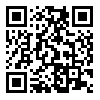Wed, Jan 15, 2025
[Archive]
Volume 6, Issue 2 (7-2024)
Int. J. Ethics Soc 2024, 6(2): 53-61 |
Back to browse issues page
Download citation:
BibTeX | RIS | EndNote | Medlars | ProCite | Reference Manager | RefWorks
Send citation to:



BibTeX | RIS | EndNote | Medlars | ProCite | Reference Manager | RefWorks
Send citation to:
Rezaee Manesh B, Aslipour H, Khanmohammadi H, Poormoghadasian P. New Institutionalism and Ethical-Cultural Analysis of Administrative Corruption in Iran. Int. J. Ethics Soc 2024; 6 (2) :53-61
URL: http://ijethics.com/article-1-289-en.html
URL: http://ijethics.com/article-1-289-en.html
1- Department of Public Administration, Allameh Tabatabai University, Tehran
2- Ph.D. Student of Public Administration, Human Resources, Allameh Tabatabai University, Tehran ,pouyapoormoghadasian@gmail.com
2- Ph.D. Student of Public Administration, Human Resources, Allameh Tabatabai University, Tehran ,
Abstract: (659 Views)
Introduction: Administrative corruption is a global problem and the biggest obstacle to reform in any country and the biggest obstacle to progress. Corruption is the violation of existing laws to secure personal interests and profits, and it is often referred to as a severe organizational disease. This research seeks to identify the moral and cultural rules and norms underlying administrative corruption in Iran based on the theory of modern institutionalism.
Material and Methods: This research is of qualitative type and in terms of method, "qualitative content analysis" and data collection method is also based on "review of documents". The research community included cases related to administrative corruption in the courts of Tehran province, which were investigated and resulted in conviction. Among them, 19 cases were randomly selected. Data were analyzed by coding method.
Results: The findings of the research showed the impact of 19 open codes, which the researcher classified into 4 core code categories, and the conceptual model of the research was formed.
Conclusion: The results of this research show that "individualistic and materialistic institutional environment", "corrupting institutional environment", "legitimization" and "institutionalized organizational corruption" are considered as factors and institutional norms underlying administrative corruption in Iran. To deal with and prevent administrative corruption in society, organizations should be institutionalized based on moral values and administrative health beliefs.
Material and Methods: This research is of qualitative type and in terms of method, "qualitative content analysis" and data collection method is also based on "review of documents". The research community included cases related to administrative corruption in the courts of Tehran province, which were investigated and resulted in conviction. Among them, 19 cases were randomly selected. Data were analyzed by coding method.
Results: The findings of the research showed the impact of 19 open codes, which the researcher classified into 4 core code categories, and the conceptual model of the research was formed.
Conclusion: The results of this research show that "individualistic and materialistic institutional environment", "corrupting institutional environment", "legitimization" and "institutionalized organizational corruption" are considered as factors and institutional norms underlying administrative corruption in Iran. To deal with and prevent administrative corruption in society, organizations should be institutionalized based on moral values and administrative health beliefs.
Type of Study: Research |
Subject:
Special
Received: 2023/10/28 | Accepted: 2023/12/4 | Published: 2024/07/26
Received: 2023/10/28 | Accepted: 2023/12/4 | Published: 2024/07/26
Send email to the article author
| Rights and permissions | |
 |
This work is licensed under a Creative Commons Attribution 4.0 International License. |







